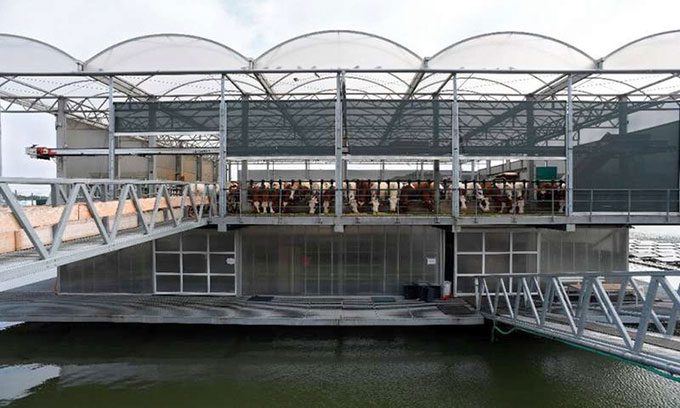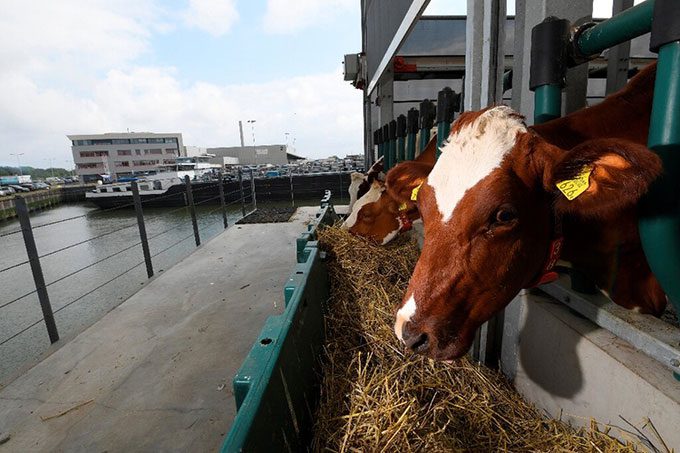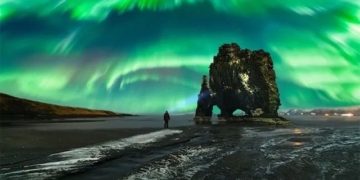As one of the “lowest” countries in the world, the Netherlands is developing floating farm models as a way to adapt to climate change.
In the port city of Rotterdam, where land is scarce and climate change is a daily threat, a three-story dairy farm made of steel and glass is rising just above the water’s surface, next to cranes and containers, seen as the future of Dutch livestock farming.

A floating dairy farm in Rotterdam, southwestern Netherlands. (Photo: AFP)
The cows live on the upper level. Their milk is processed into cheese, yogurt, and butter on the middle level, while whey continues to be cooked on the bottom level.
“The world is under a lot of pressure. Therefore, we want to develop a sustainable farm model that can be as self-sufficient as possible,” said Minke van Wingerden, 60, who runs the farm with her husband Peter, to AFP.
With the first floating farm starting operations in 2019, Peter and Minke aim to “bring the countryside to the city,” raising consumer awareness and expanding agricultural space.

The farm can rise and fall with the tide. (Photo: AFP)
The Dutch are no strangers to advanced farming methods, such as the vast greenhouse networks that have made them the second-largest agricultural exporter in the world after the United States, but this has come at a cost.
Currently, the Netherlands is the leading country in Europe for greenhouse gas emissions per capita and faces significant agricultural emissions issues, particularly methane from the dairy sector.
These emissions continue to drive rising sea levels, threatening wetlands and low-lying areas below sea level. As a result, this reduces land area in one of the most densely populated countries in the world.
“With the platform on the water, the farm can rise and fall two meters with the tide. Therefore, in the event of flooding, we can still continue production,” Mike added. “The cows do not get seasick. The water only moves a little, like you are on a cruise ship.”

Cows are fed from locally available sources. (Photo: AFP)
The cows at the farm are provided with a mix of feed that includes grapes from a food store, grains from a brewery, and grass from local golf courses and the famous Feyenoord football club in Rotterdam – helping to reduce waste and emissions.
Cow manure is used as fertilizer, while urine is filtered and recycled into drinking water for the livestock. The farm is also capable of generating its own electricity thanks to dozens of solar panels.
The dairy products are ultimately sold at a roadside facility as well as supplied to restaurants throughout the city.
Peter and Minke plan to build a second floating farm in the Netherlands to grow vegetables and “export” their idea with another project underway in Singapore. This is significant as crop farming makes the planet greener, while livestock farming does not.



















































